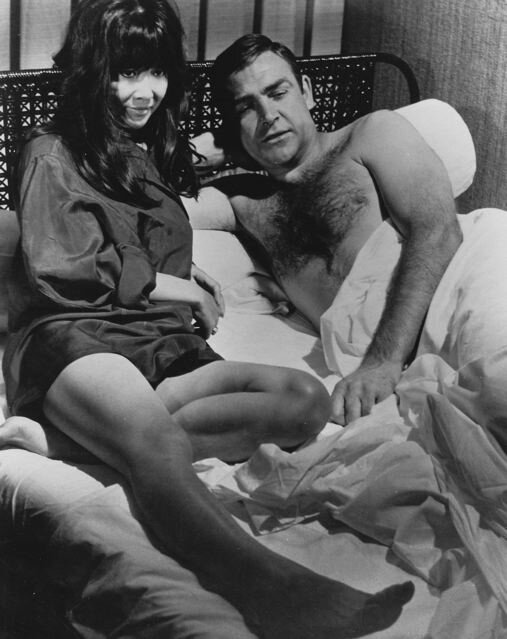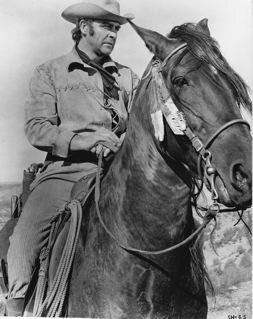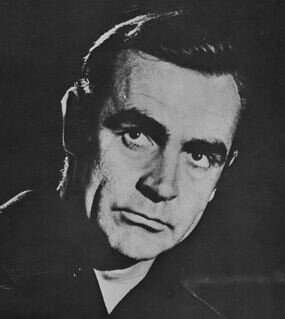You are hereJames Bond / Sean Connery 1
Sean Connery 1
Connery gave up 007 – his number but not his name
 Connery and Japanese friend in You Only Live Twice.
Connery and Japanese friend in You Only Live Twice.
By TOM SOTER
From COLUMBIA DAILY SPECTATOR
May 25, 1978
This summer, New Yorkers will be subjected to yet another disaster film. This one involves a meteor on a collision course with the earth and is imaginatively entitled Meteor. It stars Natalie Wood, Karl Malden, and Sean Connery. It is Connery's 33rd film and although it's an adventure epic it seems light years away from James Bond, Agent 007. Without Bond, however, it is doubtful that the Scottish actor would be in Meteor, or at least in it as a star. With Bond, he became internationally famous" –and typecast – and has been trying to escape the stigma ever since.
"I don't think a single other role changes a man quite as much as Bond," Connery remarked in 1971. "It's a cross, a privilege, a joke, a challenge, and as bloody intrusive as a nightmare." Shy and soft-spoken, the Scot with the slightfly cauliflowered ears and dimpled cheeks is known for his non-conformity. The cruel, supercilious Bond is far from his character; Connery likes to wear tshirts and drink beer, while Bond is happiest in a tuxedo sipping a martini at a card table. Earlier this year, too, he joined fellow actor Michael Caine in an action rarely witnessed in close-knit, familial Hollywood: a suit against Allied Artists, charging that the actors had been cheated of the profits'from their film The Man Who Would Be King.
"I've never stolen from anybody in my life," Connery explained. "To work in good faith and be cheated is wrong. I'm tired of being robbed. I think the producers should be in jail." Such independence is typical of the actor. It also helps explain his dilemma: wanting to be seen as a serious performer and as an individual, he has constantly been identified with the flippant secret agent and, ironically, he's found his greatest critical and financial success in that role.
As Bond, for example, Connery set a number of records. His third 007 adventure, Goldfinger, became the fastestgrossing film in motion-picture history, garnering $10,300,000 in its first 14 weeks alone. And Connery himself has been cited by the Guiness Book of World Records as earning an unprecedented $13.5 million income lrom his first five Bond films
Connery as cowboy in Shalako.
Such success was a long time coming. Born Thomas Connery in Edinburgh, Scotland on August 30, 1930, he went through a variety of jobs before he chose acting. Mter quitting school at age 15, he worked as a cement mixer, truck driver, lifeguard and coffin polisher before entering the navy in the late 1940s.
In 1953, out of the service and looking for work, the young man was hired as an extra for a touring production of South Pacific. He continued on the stage and in TV productions after that, but had difficulty finding roles. "I was," he later recalled, "too tall or too short, too Scottish or too Irish, too young or too old." In 1956, he signed a Hollywood contract with 20th Century Fox and was placed in a series of forgettable Bpictures. Disillusioned, he returned to the British stage and television in 1960.
His appearance in a BBC-TV production of Anna Karenina (as Count Vrcnsky) in 1961 brought him to the attention of producers Albert R. Broccoli and Harry Saltzman, wilo were casting the first James Bond movie, Doctor No. He was selected from among 250 finalists and Saltzman later recalled, "We knew this guy had something. We signed him without a screen test."
By the time of Thunderball (1965), the fourth 007 movie, Connery was the top box office draw in both the United States and Britain, reportedly earning as much as $400,000 per picture. He had only been paid $30,000 for his work in Doctor No. In 1967, he announced. that he was quitting as Bond, explaining that the role bored him. Four years later, however, he returned as the secret agent in Diamonds Are Fotever. The producers hoped that this film would be more successful than its predecessor, On Her Majesty's Secret Service (1969), a financial failure made without Connery. For Diamonds, the actor was paid a $1 million fee (which he donated to charity) and was guaranteed 12.5 per cent of the gross and financing of any two pictures of his choice. He later commented that "This was an act of enriching exorcism."
 The exorcism, however, had mixed results. For many years the shadow of Bond had hung over the Scot, and it is onl; in recent years that many reviewers havi granted him the recognition as ,a seriou: actor that he'd always sought. Critic Pauline Kael, for instance, said that "Wit! the glorious exceptions of Brando and Olivier, there's no screen actor I'd rathel watch than Sean Connery. His vitality ma~ make him the most richly masculine of al English speaking actors."
The exorcism, however, had mixed results. For many years the shadow of Bond had hung over the Scot, and it is onl; in recent years that many reviewers havi granted him the recognition as ,a seriou: actor that he'd always sought. Critic Pauline Kael, for instance, said that "Wit! the glorious exceptions of Brando and Olivier, there's no screen actor I'd rathel watch than Sean Connery. His vitality ma~ make him the most richly masculine of al English speaking actors."
Connery himself was pleased with sucl comments and also with his criticual am occasional financial success in sud diverse films' as The Offence (1973) The Man Who Would Be King (1975), and Zardoz (1974). Despite that, however, he was disappointed by the failure of his ten-year marriage to actress Diane Cilento. T'hey divorced in 1972 and he remarried in 1975. "One is always reluctant to admit failure," he remarked in an interview at the time, "and a marriage that goes wrong is as bad as anything can be, I suppose.
"Our careers were incompatibie, not us. You are offered a part and you want to do it, but suddenly there are a hundred questions to settle: what is she doing? What is he doing? Who will look after the kids? Can they come? Who will look after the house? Interminable. So we finally had to come to terms with what we'd gotten ourselves into. But, you know, I've always found it very hard to discuss when it comes to the confrontation bit. Everything goes out of the window. You start falling into the traps of self-deceit. You get on the defensive because you feel you have failed. I hate fai1ure ~ but it is still the only true challenge, isn't it?"
